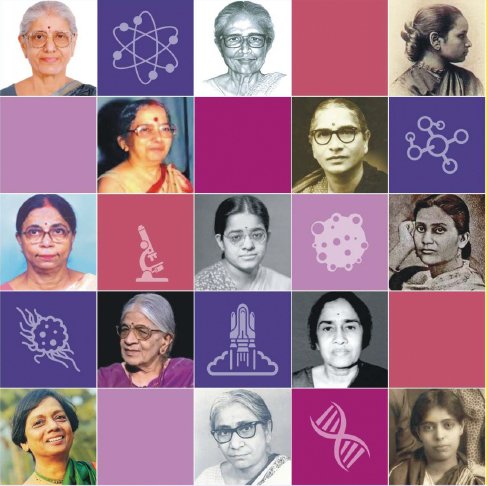 International Women’s Day gives us an occasion to remember the path-breaking contributions of India’s women leaders, some of whom fought pernicious age-old customs such as child marriage to finally become leading doctors and scientists who could inspire others to follow in their footsteps.
International Women’s Day gives us an occasion to remember the path-breaking contributions of India’s women leaders, some of whom fought pernicious age-old customs such as child marriage to finally become leading doctors and scientists who could inspire others to follow in their footsteps.
These women surmounted family, societal and financial hurdles to break through the glass ceiling and proved that women, too, can be high-achievers just like men.They set an example that other women could emulate and paved the way for the feminist movement to gather momentum.
One of the first amongst them was Rukhmabai (22 November 1864 – 25 September 1955) fought her way out of the evil custom of child marriage to become a physician and take up the feminist cause. She is best known for being one of the first practicing women doctors in colonial India as well as being involved in a landmark legal case involving her marriage as a child bride between 1884 and 1888. The case raised significant public debate across a range of topics, most prominently including law versus tradition, social reform versus conservatism, and feminism in both British-ruled India and England. It eventually contributed to the Age of Consent Act in 1891.
Rukhmabai
Anandi Bai Gopalrao Joshi (31 March 1865 – 26 February 1887), along with Kadambini Ganguly, was one of the first Indian female practitioners of Western medicine. She was the first woman of the erstwhile Bombay Presidency of India to study and graduate in the United States with a two-year degree in Western medicine.
Anandibai Joshi
Janaki Ammal Idavalath Kakkat (4 November 1897 – 7 February 1984) was an Indian botanist who worked on plant breeding, cytogenetics and phytogeography. Her most notable work included studies on sugarcane and brinjal, but she also worked on the cytogenetics of a range of plants and co-authored the Chromosome Atlas of Cultivated Plants with C.D. Darlington. She took a keen interest in ethnobotany, and took an interest in plants of medicinal and economic value from the rain forests of Kerala. In 1977, she was awarded the Padma Shri.
Janaki Ammal
Asima Chatterjee (23 September 1917 – 22 November 2006) was an Indian organic chemist known for her work in the field of organic chemistry and phytomedicine. She was the first woman to receive a doctorate of science from an Indian university. Her most notable work includes research on Vinka alkaloids, the development of anti-epileptic drugs, and the development of anti-malarial drugs. She also worked extensively on medicinal plants of the Indian subcontinent.
Asima Chatterjee
Anna Mani (23 August 1918 – 16 August 2001) was an Indian physicist and meteorologist. She made many contributions in the field of meteorological instrumentation, conducted research and published several papers on solar radiation, ozone and wind energy Measurement.She retired as the Deputy Director General of the Indian Meteorological Department and further served as a visiting professor at the Raman Research Institute.
Anna Mani
Kamala Sohonie (18 June 1911 – 28 June 1998) was a leading Indian biochemist who became the first Indian woman to receive a PhD in scientific discipline in 1939. The acceptance and work of Kamala Sohoni at the Indian Institute of Science, Bangalore paved the way for women to be accepted into the Institute for the first time in its history.
Kamala Sohonie
Kamal Ranadive (8 November 1917 – 2001) was an Indian biomedical researcher known for her research in cancer regarding the relationship between cancer and viruses. In the 1960s, she established India's first tissue culture research laboratory at the Indian Cancer Research Center in Mumbai. She was a founding member of the Indian Women Scientists’ Association.
Kamal Ranadive
Nandini Harinath– is a rocket scientist at ISRO's (Indian Space Research Organisation) Satellite Center in Bangalore. She is a part of the Mars Orbiter Mission, Mangalyaan. Nandini's first performance on science was the popular television series Star Trek. She has co-authored a research paper on mission planning, analysis, and operations — outline of key components.
Nandini Harinath
Aditi Pant is an Indian oceanographer. She has held key positions in institutions including National Institute of Oceanography, National Chemical Laboratory, University of Pune and Maharashtra Academy of Sciences. She was the first Indian woman to visit Antarctica in 1983 as part of the Indian Antarctic Program.
Aditi Pant
Indira Hinduja is an Indian gynaecologist, obstetrician and infertility specialist based in Mumbai. She pioneered the Gamete intrafallopian transfer (GIFT) technique, resulting in India's first Gamete intra-fallopian transfer baby on 4 January 1988. Earlier, on August 6, 1986, she delivered India's second test tube baby at KEM Hospital. She is also credited with developing an oocyte donation technique for menopausal and premature ovarian failure patients, which on 24 January 1991, giving the nation's first child from the technique.
Indira Hinduja
Tessy Thomas (born April 1963), known as the Missile Woman in India. She is an Indian scientist and director general of aeronautical systems and former project director of the Agni- V missile at the Defense Research and Development Organization (DRDO) and she is the first woman scientist to lead a missile project in India.
Tessy Thomas




















